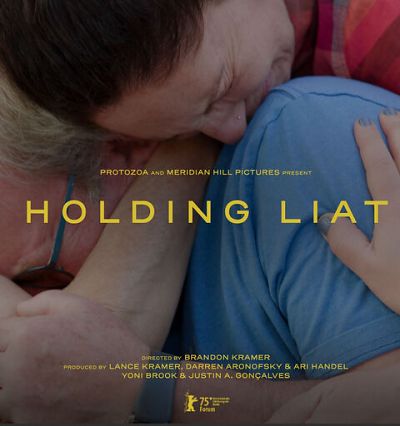
JIFF: Holding Liat
Click here if you liked this article 8 ![]()
https://www.jiff.com.au/films/holding-liat
Date Reviewed: 21/10/2025
Brandon Kramer’s Holding Liat arrives at a time when the world feels fiercely divided. Courageously, his documentary refuses to take sides.
Winner of the 2025 Berlin Documentary Award, this deeply human film invites viewers to pause and reflect on the complexities of the Middle East.
The 7th October attacks against Israel are seen through the eyes of the US–Israeli family of Liat Beinin Atzili, 49, and her husband, Aviv, 48, who are abducted from their kibbutz. Week by week, the documentary traces the unfolding political events and the family’s desperate efforts for Liat’s release after 54 harrowing days in captivity.
Liat’s parents, Yehuda and Chaya Beinin, are thrust into an emotional odyssey where their ideology is tested against raw grief.
Kramer’s camera lingers on close-ups: anxious faces, strained smiles, expressions that convey what words cannot.
At times, the cinematography feels like a vlog, or scenes captured on an iPhone, interspersed with fragments of old wedding footage and news clips. There is silence instead of background music; a deliberate restraint that amplifies authenticity.
The result is realism at its purest: a visual language that collapses the distance between viewer and subject.
What stands out most is the film’s self-control. In an era of emotional excess and social media outrage, Holding Liat is a voice of reason, nuanced, balanced, and unflinching in its moral inquiry.
Joel Beinin, Liat’s uncle, articulates a personal conflict: “On the one hand my feelings are as a member of the family, and certainly I want to be supportive of the family, but I disagree politically,” he says. Then, with brutal honesty, he adds, “I am not going to give Palestinians discounts; they need to take responsibility for their own piece of shit.”
A legitimate question follows by Yehuda, Liat’s father: “But you don’t think that every day Israel is creating members of a new Hamas by what it is doing in the Gaza Strip?”
The most moving moments are found in the ordinary, family members returning to the Nir Oz kibbutz, tending to what remains as a way to process loss.
“The kibbutz is like a grandma,” says the eldest son. “She is really ill and she is in the hospital, but to not come visit her and to not help her, then I would be ashamed. We have a responsibility to the kibbutz.”
Liat’s family wrestle with their moral compass in the face of global indifference and political opportunism, and with their own conflicting beliefs about Israel, Gaza, and peace.
When Liat is finally freed, her voice takes over the narrative. She speaks of “the fence” and how she now understands what life is like beyond it.
It is an impactful story, not overly sentimental, and not propagandist. Kramer’s restraint is his triumph. His film captures the universality of pain and the quiet beauty of empathy.
There are no villains here, only flawed and frightened people. The film’s humanity reminds us that caring for one side need not cancel compassion for the other, a profound message for our divided times.
If there is a weakness, it lies in the lack of closure. But perhaps that is the point. There are no easy answers when politics and human suffering intertwine. The open-minded viewer, the one who looks beyond the noise, is left contemplating how fragile and deeply connected our stories are.
Written by Ra’anan Alexandrowicz, Carol Dysinger, and Gordon Quinn.
Suggestion:
Dear Brandon Kramer, direct a Part Two. I want to revisit the Beinin and Atzili families two years on to see how they are, and whether hope has endured.
Highlights
- Refusal to take sides and an ideological struggle
- Intimate personal storytelling that exposes moral complexity
- Restraint and emotional intelligence
- Beautiful scenes of the Middle East juxtaposed with a family’s pain
Who’s it for
- Documentary film enthusiasts
- Open-minded, thoughtful viewers
- Anyone seeking to understand the human impact of the October 7 attacks
Skip it if
You prefer slogans over substance. The film demands thought, not reflex.
‘Holding Liat’ is one of 50 Jewish-themed films from around the world, screening as part of the Jewish International Film Festival in Australian cinemas nationally from 19th October through to 21st December.
Reviewed by Mary Sinanidis